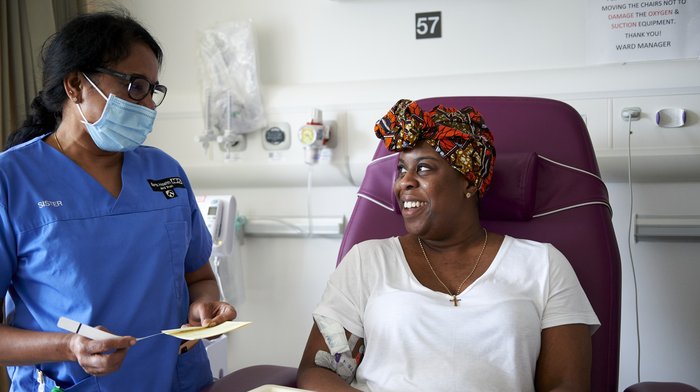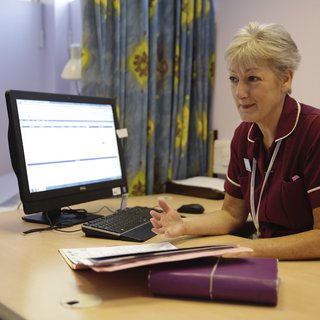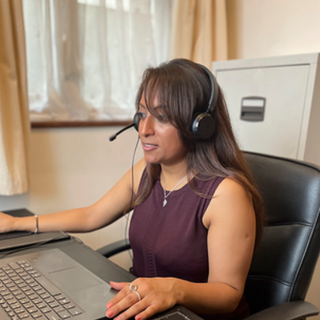Help us improve access to clinical trials – become a Community Participant
Some types of blood cancer can be more common in certain ethnic groups. However not many people from ethnic minorities access blood cancer clinical trials. We want to change this and need your help.

Join the project as a Community Participant
Are you from a Black or Pakistani background and have been affected by blood cancer?
We need your help to make trials and research more accessible for your community.
What you'll do
You'll be invited to participate in an interview or workshop to share your insights and experiences of blood cancer. It will take about 1-2 hours and you will be paid for your time.
We will explore barriers and enablers to accessing clinical trials, experiences around clinical trials and the intersection of race and how this impacts an individual's experience.
A Community Researcher (someone from a Black or Pakistani background with a lived experience of cancer) will conduct the interview.
Blood Cancer UK and The Social Innovation Partnership have partnered to deliver this project and will support you and Community Researchers.
We are looking for people who
- Are from a Black or Pakistani background
- Have a lived experience of blood cancer
- You will be based in or work in London. If you're not based in London but received blood cancer treatment there, we'd love to hear from you.
- Are over the age of 18
Let us know if you're interested
If you are happy to be interviewed or join a workshop and meet the above criteria, register your interest by joining our involvement network and we'll share further details.
If you want to learn more about the project and this opportunity, please email Veronica [email protected].
Other opportunities
This project is in its pilot stage meaning that we're focusing on one location to better understand the barriers to accessing clinical trials. Once we have key learnings from the pilot we would like to scale and talk to people from across the UK to ensure anything we develop works for everyone.
Please join our involvement network to receive opportunities to support our work.
About the project
Research indicates that individuals from minority ethnic groups are less likely to participate in research, including clinical trials for blood cancer treatments. This underrepresentation can be attributed to several factors:
- Many people from minority communities are unaware of available opportunities to join clinical trials, limiting their participation.
- There is often a lack of culturally tailored information and support for healthcare professionals and people from ethnic minorities, creating barriers to understanding and engagement.
The underrepresentation of these groups makes it challenging to assess how treatments may affect them differently.
- Better understanding of attitudes towards and barriers to accessing clinical trials for the Black and Pakistani community.
- Develop interventions to improve awareness and access to blood cancer clinical trials and reduce health inequalities.
How are we delivering this?
We'll conduct workshops with members of the Black and Pakistani communities, healthcare professionals and researchers to better understand what stops people from these communities from joining clinical trials. We're focusing on these ethnic groups because some types of blood cancer are more common in these communities.
We'll use the findings from these workshops to co-design tools with the community to test and learn. Throughout the project, we'll be leaning on our Steering Group of professionals and community members to ensure the products developed are useable across the UK and adaptable for all minority ethnic groups.
To help deliver this project we've partnered with The Social Innovation Partnership (TSIP). They work to ensure that people and organisations have the knowledge, access and power they need to drive positive change in the places they choose and on the issues that affect them. Their way of working is rooted in a unique service design and co-production approach, which combines elements of human-centred design done with and by communities, systems thinking and continuous learning.
Acknowledgement
This project was made possible by the generous funding from Bristol Myers Squibb.



